For more information about physics outreach, please contact the physics department outreach coordinator.
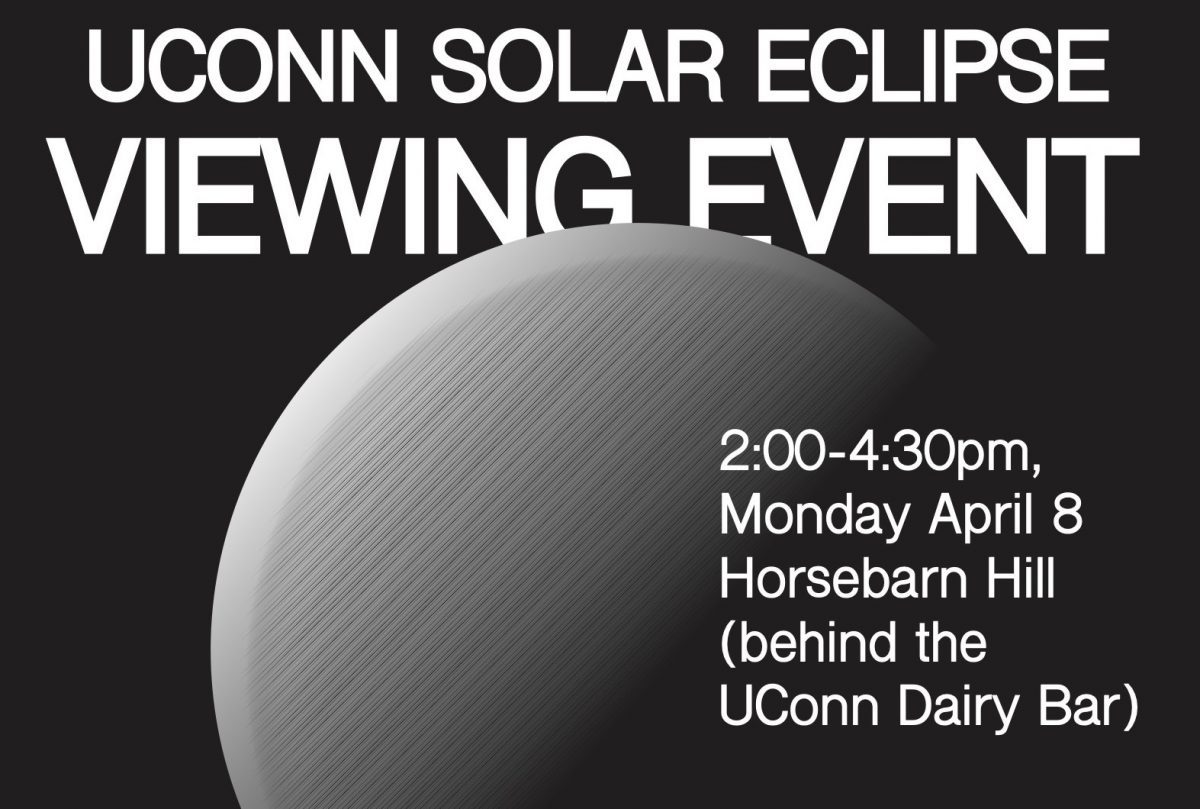
Solar Eclipse Viewing Event: 2-4:30pm Mon Apr 8 on Horsebarn Hill
UConn faculty and students will host a community event to view the solar eclipse at 2:00-4:30pm this Monday, April 8, on Horsebarn Hill (behind the Dairy Bar). Here in Storrs we’ll observe a maximum occultation of 92% at 3:28pm. This is a very exciting and special opportunity, since the next time that our location will […]
[Read More]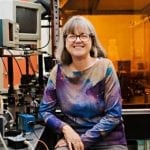
Nobel Prize Winner, Professor Donna Strickland , Katzenstein Distinguished Lecturer
The University of Connecticut, Department of Physics, is proud to announce that on September 23, 2022, Professor Donna Strickland of the Department of Physics and Astronomy at the University of Waterloo will be presenting the 2020 Distinguished Katzenstein Lecture. Prof. Strickland is one of the recipients of the 2018 Nobel Prize in Physics for developing […]
[Read More]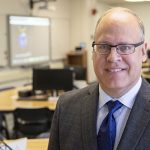
Dear Friends of UConn Physics
As we approach the beginning of the 2021-22 school year, UConn is set for having classes in person again, students on campus, and our first taste of somewhat normal university life in a year and a half. Students, faculty, and staff are all required to be vaccinated, masks are required indoors, classrooms will be fully […]
[Read More]2020-Newsletter Department Head Greeting
It’s been crazy. That holds for everybody over these past six months; UConn and the Physics Department as well. Events unfurled rapidly last March. Within a week the March Meeting of the APS was cancelled, our department had to postpone the 2020 Katzenstein Lecture with Donna Strickland, and then the University announced that students would […]
[Read More]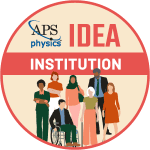
Physics Department Joins APS-IDEA Network
The Physics Department’s Diversity & Multiculturalism Committee (DMC) was accepted into the APS Inclusion, Diversity and Equity Alliance (APS-IDEA). Despite years of efforts on local and national levels, the diversity in many physics departments is not reflective of the diversity nationwide. Our department is no exception in this regard. The new APS initiative was created […]
[Read More]2019-Newsletter Department Head Greeting
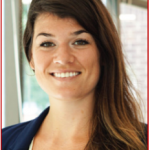
Insight from APS: Careers in Physics
What is a Bachelors of Science degree in Physics good for? What kinds of jobs are available to graduates who complete a 4-year degree in physics, but decide not to pursue an advanced degree? How does a physics degree stack up against other STEM fields in terms of employment options in today’s highly competitive job […]
[Read More]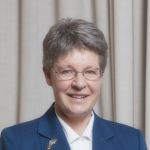
Professor Jocelyn Bell Burnell – 2019 Katzenstein Lecturer
The UConn Physics Department is delighted to announce that our 2019 Distinguished Katzenstein Lecturer will be Professor Dame Jocelyn Bell Burnell. Professor Dame Jocelyn Bell Burnell is world-famous for her discovery of pulsars in 1967. Pulsars are a special type of neutron star, the rotating dense remnant of a massive star. Pulsars have highly magnetic surfaces, and emit a beam of electromagnetic radiation […]
[Read More]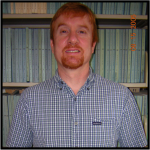
Research Spotlight: Exploring the nature of the universe with Dr. Thomas Blum
The Daily Campus published an article highlighting the research of Prof. Thomas Blum about Quantum Chromodynamics, a theory which describes the interactions between elementary particles. The development of this theory could help further understanding of the Standard Model of particle physics. The Standard Model is what physicists use to describe the fundamental building blocks of […]
[Read More]
Astronomer Jonathan Trump interviewed on UConn 360
UConn Astrophysicist and observational astronomer Jonathan Trump was a recent guest on UConn 360, a podcast from the Storrs campus of the University of Connecticut. In this conversation, Jonathan tells about how attending a lecture as an undergraduate at Penn State captured his interest and changed the course of his professional career. Now Jonathan offers […]
[Read More]
Greetings from the Department Head
New building, new teaching approach, new people – there is a lot of change and excitement in the air for the Physics Department in 2019. The most obvious change is that physics has moved into a newly renovated building. What most alumni will remember as the Math Building has been taken down to its frame […]
[Read More]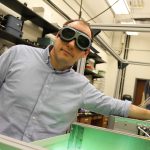
Meet the Researcher: Carlos Trallero
When Carlos Trallero started his academic career in physics, he had no idea he would become a pioneer in a field of research that uses high-power lasers to investigate atomic and molecular physical phenomena. Originally from Cuba, where there isn’t much funding for experimental research, Trallero began his academic career by studying theoretical physics. But as a senior graduate student at Stony Brook University, he got the chance to work in a lab doing experimental work and quickly recognized it was his true passion.
[Read More]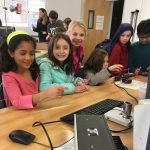
Goodwin School 3rd grade visits the Physics Learning Labs
About one mile from the Gant plaza, Goodwin Elementary School teaches some really bright kids. On January 15, 2019, science teacher Nancy Titchen and Goodwin teachers brought the entire 3rd grade class on a field trip to the Physics Learning Labs mock-up studio for some science fun. Students enjoyed a liquid nitrogen show, witnessed quantum […]
[Read More]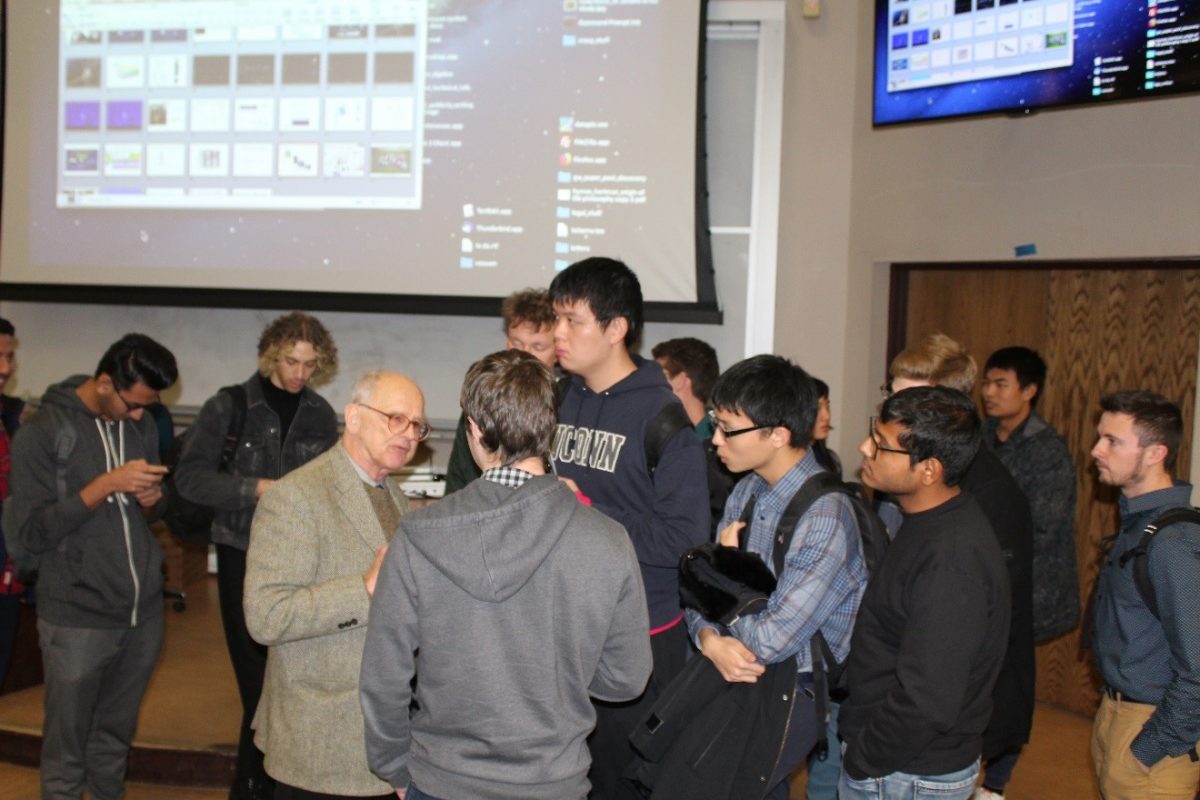
Professor Rainer Weiss: Katzenstein Distinguished Lecture
The Katzenstein Distinguished Lectures series continued in the 2018 academic year with its twenty second Nobel Laureate lecturer, with an October 26, 2018 lecture by Professor Rainer Weiss of the Massachusetts Institute of Technology. The title of Professor Weiss’ talk was “Exploration of the Universe with Gravitational Waves”, with abstract: The observations of gravitational waves […]
[Read More]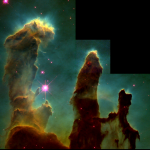
UConn Prof. Kate Whitaker interviewed by Gizmodo
Gizmodo has recently launched a new series of articles to explore how the best images in science were created and why. In a recent article in this series by Ryan F. Mandelbaum entitled, “The Making of ‘Pillars of Creation,’ One of the Most Amazing Images of Our Universe”, the author presents a classic set of images taken […]
[Read More]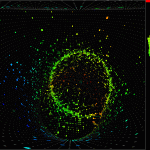
21st Annual Katzenstein Distinguished Lecture
Monday, March 26, 2018 The 21st Annual Katzenstein Distinguished Lecture was hosted by the UConn Physics Department, featuring Dr. Takaaki Kajita, 2015 Nobel Prize Winner from the University of Tokyo, speaking on “Oscillating Neutrinos.” After the lecture, a banquet with the speaker was held for members and guests of the department. We enjoyed welcoming alumni and […]
[Read More]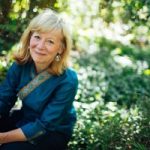
Special Lecture on Diversity and Inclusion
Solving the complex problems that we face in our world today requires a more talented workforce than we have ever needed before. Such a workforce must be comprised of a wide range of diverse talents and creative insights. No segment of the population can be ignored or overlooked in this talent search. This presentation will describe the most recent research that demonstrates the positive impact that social and informational diversity has on science and innovation, the reasons for this impact and the importance of committed leadership in achieving a strong and inclusive workplace where creativity and productivity is maximized.
[Read More]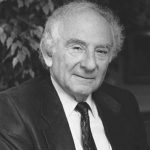
Katzenstein lecture brings Nobel Laureat, UConn alumni to Storrs
The Katzenstein Distinguished Lectures series continued in Fall 2016 for its 19th year, with an October 28, 2016 lecture by Professor Leon N. Cooper of Brown University, entitled “On the Interpretation of the Quantum Theory: Can Free Will And Locality Exist Together In The Quantum Theory?” Professor Cooper shared the 1972 Nobel Prize in Physics […]
[Read More]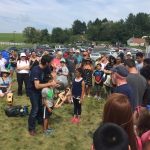
Thousands attended eclipse viewing hosted by UConn Physics
On Monday, August 21, 2017, the moon eclipsed the sun across the US. What began as a small organic outreach activity blossomed into an epic community event. With help from UConn communications, the UConn Physics club, and staff in the physics department, astronomers Jonathan Trump, Cara Battersby, and Kate Whitaker hosted an eclipse viewing event open […]
[Read More]The Solar Eclipse Viewing Party
Please join the Department of Physics at UConn for a Solar Eclipse Viewing Party! Hosted by Prof. Cara Battersby, Prof. Jonathan Trump, and Prof. Kate Whitaker August 21 2017, Horsebarn Hill 1:00 – 4:00 PM (next to Dairy Bar) weather permitting From our location, the solar eclipse begins at 1:25pm and ends at 4:00pm. Maximum […]
[Read More]